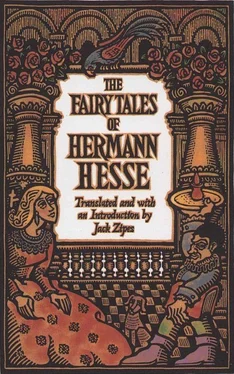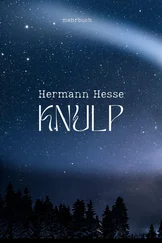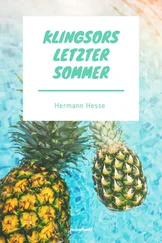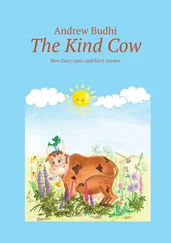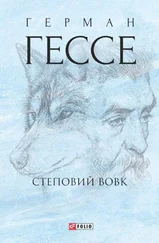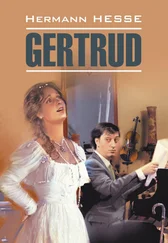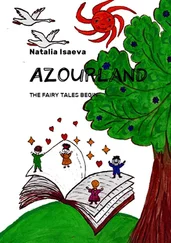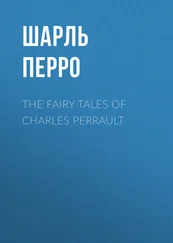Hermann Hesse - The Fairy Tales of Hermann Hesse
Здесь есть возможность читать онлайн «Hermann Hesse - The Fairy Tales of Hermann Hesse» весь текст электронной книги совершенно бесплатно (целиком полную версию без сокращений). В некоторых случаях можно слушать аудио, скачать через торрент в формате fb2 и присутствует краткое содержание. Год выпуска: 1995, ISBN: 1995, Издательство: Bantam Books, Жанр: Классическая проза, Сказка, на английском языке. Описание произведения, (предисловие) а так же отзывы посетителей доступны на портале библиотеки ЛибКат.
- Название:The Fairy Tales of Hermann Hesse
- Автор:
- Издательство:Bantam Books
- Жанр:
- Год:1995
- ISBN:9780553377767
- Рейтинг книги:5 / 5. Голосов: 1
-
Избранное:Добавить в избранное
- Отзывы:
-
Ваша оценка:
- 100
- 1
- 2
- 3
- 4
- 5
The Fairy Tales of Hermann Hesse: краткое содержание, описание и аннотация
Предлагаем к чтению аннотацию, описание, краткое содержание или предисловие (зависит от того, что написал сам автор книги «The Fairy Tales of Hermann Hesse»). Если вы не нашли необходимую информацию о книге — напишите в комментариях, мы постараемся отыскать её.
The Fairy Tales of Hermann Hesse — читать онлайн бесплатно полную книгу (весь текст) целиком
Ниже представлен текст книги, разбитый по страницам. Система сохранения места последней прочитанной страницы, позволяет с удобством читать онлайн бесплатно книгу «The Fairy Tales of Hermann Hesse», без необходимости каждый раз заново искать на чём Вы остановились. Поставьте закладку, и сможете в любой момент перейти на страницу, на которой закончили чтение.
Интервал:
Закладка:
He worked a little while longer. Then he held the sketch pad away from himself and examined his sketch carefully. His very first glance told him that he had completely failed to capture the wicker chair.
Angrily he drew a new line into the sketch and fixed his eyes grimly on the chair. The sketch was still not right. It made him mad,
“You demonic wicker chair!” he screamed violently. “I’ve never seen a beast as moody as you are!”
The chair cracked a little and said with equanimity, “Yes, take a look at me! I am as I am, and I won’t change myself anymore.”
The painter kicked it with his toe. The chair swerved backward to avoid the kick and now looked completely different.
“You dumb chair!” the young man exclaimed. “Everything is crooked and wrong about you.”
The wicker chair smiled a little and said softly, “That’s what’s called perspective, young man.”
The painter jumped up. “Perspective!” he yelled furiously. “Now this clown of a chair comes and wants to play schoolteacher. Perspective is my affair, not yours. Remember that!”
The chair said nothing more. The painter stomped loudly back and forth a few times until someone began pounding beneath the floor with a cane. An elderly man, a scholar, lived under him, and he could not bear the noise.
The young man sat down and looked at his last self-portrait. But it did not please him. He found that he looked more handsome and interesting in reality, and that was the truth.
Now he wanted to read his book again, but there was more in the book about the Dutch straw chair, which irritated him. He now felt that the writer had really made much too much of it, and after all …
The young man looked for his artist’s hat and decided to go out. He remembered that he had long ago been struck by the fact that painting was not very fulfilling. One had nothing but bother and disappointments, and in the end even the best painter in the world could portray only the simple surface of objects. For a man who loved the profound aspects of life, it was no profession for him in the long run. And once more he seriously thought, as he had done many times, about following an even earlier inclination and becoming a writer instead of a painter. The wicker chair remained behind in the attic. It was sorry that its young master had gone. It had hoped that a decent relationship could finally develop between the two of them. It would have liked at times to speak a word, and it knew that it certainly had many valuable things to teach a young man. But unfortunately nothing ever came of this.
Iris
(1918)

During the spring of his childhood, Anselm used to run joyfully in the green garden. One of his mother’s flowers was called the blue flag, and he was especially fond of it. He used to press his cheek against its tall bright green leaves, touch and feel its sharp points with his fingers, and smell and inhale its wonderful blossoms. Long rows of yellow fingers rose from the pale blue center and stood erect. Between them a light path ran deep down into the calyx and into the distant blue mystery of the blossom. He loved this flower very much and used to stare inside it for moments on end. At times he envisioned the delicate yellow members like a golden fence standing at a king’s garden, and at other times they looked like a double row of beautiful dream trees, and no wind could sway them. The mysterious path into the inner depths ran between them, interlaced with living veins that were as delicate as glass. The vault spread itself out enormously, and the path lost itself infinitely deep between the golden trees in the caverns. Above the path the violet vault bowed majestically and spread thin magic shadows over the silent miracle that was anticipated. Anselm knew that this was the mouth of the flower, that its heart and its thoughts lived behind the splendid yellow protrusions in the blue cavern, and that its breath and its dreams streamed in and out along this glorious bright path with its glassy veins.
Next to the large blooming flowers stood small blossoms that had not yet opened. They were on firm ripe stems in small chalices with brownish-green skin. The young blossoms forced themselves quietly and vigorously from these chalices, tightly wrapped in light green and lilac. Then the young deep violet managed to peer forth erect and tender, rolled into fine points. Veins and hundreds of lines could already be seen on these tightly rolled young petals.
In the morning, each time Anselm came out of the house, drawn from sleep and dreams and faraway places, the garden stood waiting for him. It was always there and always new. If yesterday there had been the hard blue point of a blossom tightly rolled and staring out of a green husk, there was now a young petal that hung thin and blue as the sky with a tongue and a lip, searching and feeling for its form and arch, about which it had been dreaming for a long time. And right at the bottom, where it was still engaged in a quiet struggle with its sheath, a delicate yellow plant with bright veins, one could sense, was preparing its path to a distant fragrant abyss of the soul. Perhaps it would open at noon, perhaps in the evening. A blue silk tent would arch over the golden dream forest, and its first dreams, thoughts, and songs would emanate silently out of the magical abyss.
Then a day would come when the grass was filled with nothing but bluebells. Then a day would come when suddenly a new tone and fragrance enveloped the garden. The first tea rose would hang, soft and golden-red, over the scarlet leaves soaked in sun. Then a day would come when there were no more blue flags. They would be gone. There would be no more path with a golden fence that led gently down into the fragrant mysteries. Stiff leaves would stand sharp and cool like strangers. But red berries would ripen in the bushes, and new, incredible butterflies would fly freely and playfully over the star-shaped flowers, red-brown butterflies with mother-of-pearl backs and hawk moths with wings like glass.
Anselm talked to the butterflies and the pebbles. The beetles and lizards were his friends. Birds told him bird stories. Ferns showed him secretly the brown seeds they had gathered and stored under the roof of the giant leaves. Pieces of green sparkling glass that caught the rays of the sun became for him palaces, gardens, and glistening treasure chambers. If the lilies were gone, then the nasturtiums bloomed. If the tea roses wilted, then the blackberries became brown. Everything fluctuated, was always there and always gone, disappeared and reappeared in its season. Even the scary strange days, when the cold wind clamored in the pine forest and the withered foliage clattered so pale and dead throughout the entire garden, even these days brought still another song, an experience, or a story with them until everything subsided again. Snow fell outside the windows and forests of palms grew on the panes. Angels with silver bells flew through the evening, and the hall and floor smelled from dried fruit. Friendship and trust were never extinguished in that good world, and when once snowdrops unexpectedly shone next to the black ivy leaves and the first early birds flew high through new blue heights, it was as if everything had been there all the time. Until one day, once again, the first bluish point of the bud peered out from the stem of the blue flag, never expected and yet always exactly the way it had to be and always equally desired.
For Anselm, everything was beautiful. Everything was welcome, familiar, and friendly, but the most magical and blessed moment for the boy came each year when the first blue flag appeared. At one time in his earliest childhood dream, he had read the book of wonders for the first time in its chalice. Its fragrance and numerous undulating shades of blue had been for him the call and the key to the creation of the world. The blue flag accompanied him through all the years of his innocence. It had renewed itself with each new summer, had become richer in mystery and more moving. Other flowers had mouths, too. Other flowers also diffused fragrance and thoughts. Others also enticed bees and beetles into their small sweet chambers. But the boy adored the blue flag or iris more than any other flower, and it became most important for him. It was the symbol and example of everything worth contemplating and everything that was miraculous. When he looked into its chalice and, steeped in thought, followed that bright dreamlike path between the marvelous yellow shrubs toward the twilight deep inside the flower, then his soul looked through the gate where appearance becomes an enigma and seeing becomes a presentiment. Even at times during the night he would dream about the chalice of the flower and see it enormously opened in front of him like the gate of a heavenly palace, and he would enter riding on a horse or flying on swans, and the entire world would ride and fly and glide gently with him, drawn by magic down into the glorious abyss where every expectation had to be fulfilled and each presentiment had to become true.
Читать дальшеИнтервал:
Закладка:
Похожие книги на «The Fairy Tales of Hermann Hesse»
Представляем Вашему вниманию похожие книги на «The Fairy Tales of Hermann Hesse» списком для выбора. Мы отобрали схожую по названию и смыслу литературу в надежде предоставить читателям больше вариантов отыскать новые, интересные, ещё непрочитанные произведения.
Обсуждение, отзывы о книге «The Fairy Tales of Hermann Hesse» и просто собственные мнения читателей. Оставьте ваши комментарии, напишите, что Вы думаете о произведении, его смысле или главных героях. Укажите что конкретно понравилось, а что нет, и почему Вы так считаете.
